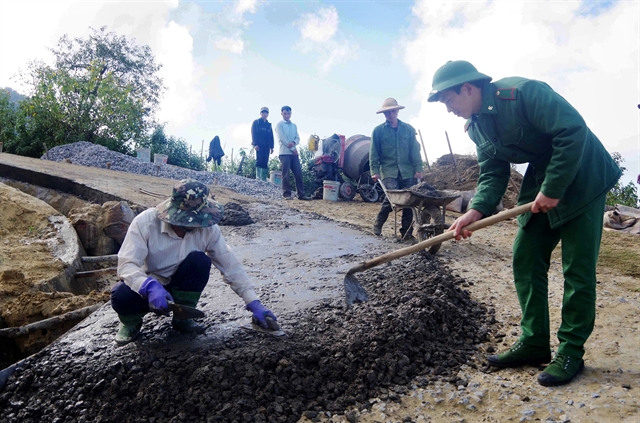
Prime Minister Nguyen Xuan Phuc said building new-style rural areas will continue long into the future, capitalising on the success of the nine-year programme
 |
Prime Minister Nguyen Xuan Phuc said building new-style rural areas will continue long into the future, capitalising on the success of the nine-year programme
Addressing a national conference held in the northern province of Nam Định on Saturday, the PM said since the programme began in 2010, it has made historic breakthroughs, given a facelift to rural areas across Viet Nam, raised the stature of farmers, considerably improved their lives, and continues to restructure agriculture in a modern and sustainable manner.
The programme has successfully capitalised on the combined strengths of the political system and the people, he said.
He attributed its success largely to people’s contributions, adding that tens of thousands of kilometres of rural roads have been constructed without any cash spent thanks to locals donating their land, money and time to work.
However, PM Phuc also pointed out shortcomings of the programme and suggested a number of solutions.
He stressed that all localities must not be complacent about what they have achieved, but have the consistent viewpoint that building new-style rural areas is just the beginning, there is no end in sight.
The PM also requested localities nationwide to launch an emulation movement on building new-style countryside for 2021-25.
According to Minister of Agriculture and Rural Development Nguyen Xuan Cuong, the programme has helped turn many rural areas into good places to live.
Data shows building targets have been reached almost two years ahead of schedule. As of October 2019, 4,665 communes or 52.4 per cent of the total nationwide have been recognised as new-style rural areas, 2.4 percentage points higher than the target set for 2020. Among them, 63 communes have satisfied advanced criteria.
Eight provinces and centrally-run cities have had all of their communes winning the recognition, namely the provinces of Nam Dinh, Ha Nam, Hung Yen, Thai Binh, Dong Nai and Binh Dương, and the cities of Da Nang and Can Tho.
Meanwhile, 109 district-level localities in 41 provinces and cities have gained the title.
In particular, with all of their communes and district-level localities meeting all criteria, Dong Nai and Nam Dinh completed the task.
The annual per capita income in rural regions rose three-fold, from VND12.8 million (over US$550 at the current exchange rate) in 2010 to VND35.9 million in 2018. The income gap between rural and urban areas also dropped from 2.1 times to 1.8 times during the period. The household poverty rate in those areas has also declined sharply, about 1.5 per cent each year on average, to 7.38 per cent now.
Rural socio-economic infrastructure has been improved considerably, gradually meeting people’ daily and production needs and keeping up with local development demand. After more than nine years, more than 206,740km of rural roads have been constructed or upgraded across the country. Cultural and social aspects have also received more attention.
(Source: VNS)




